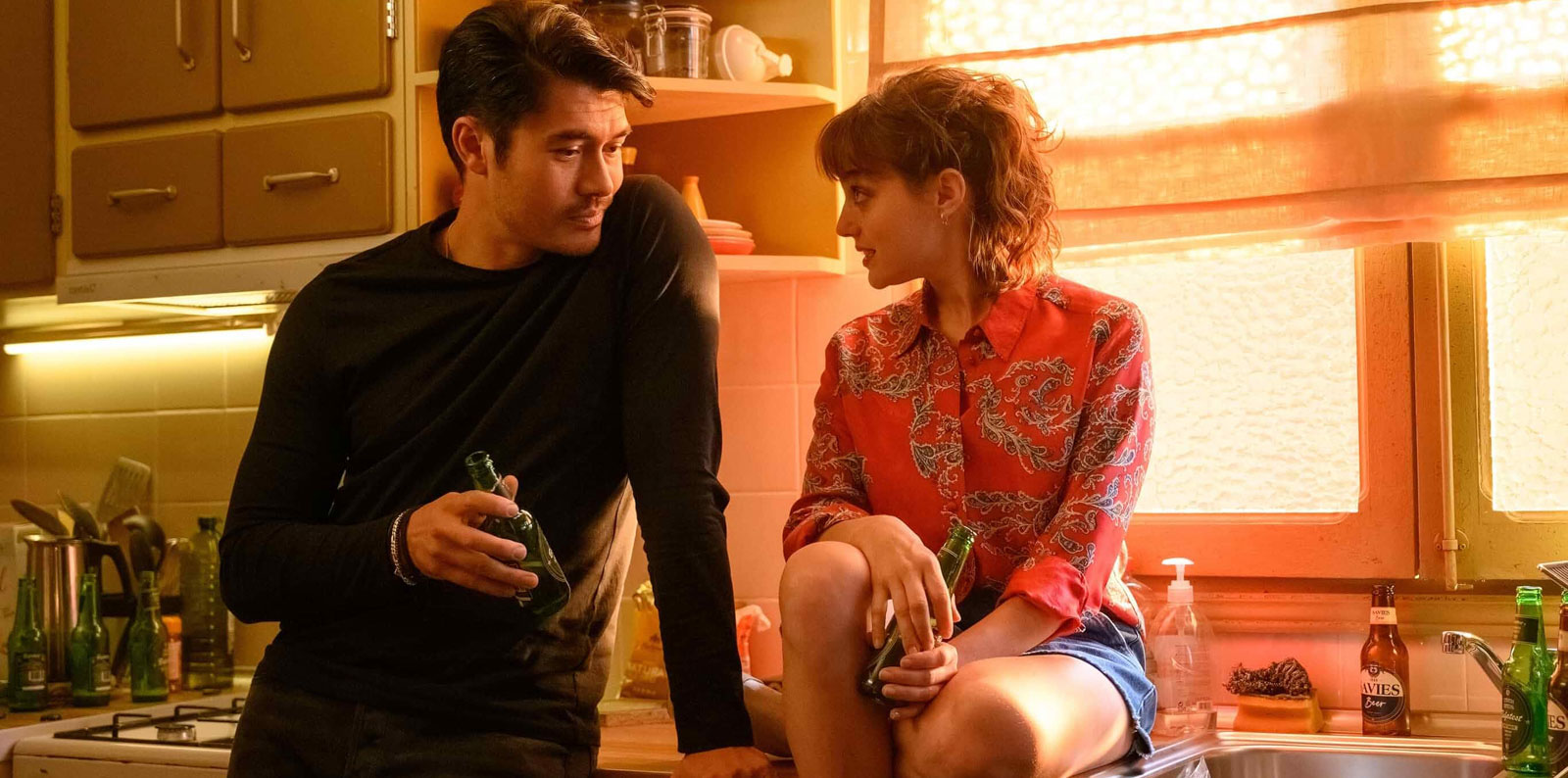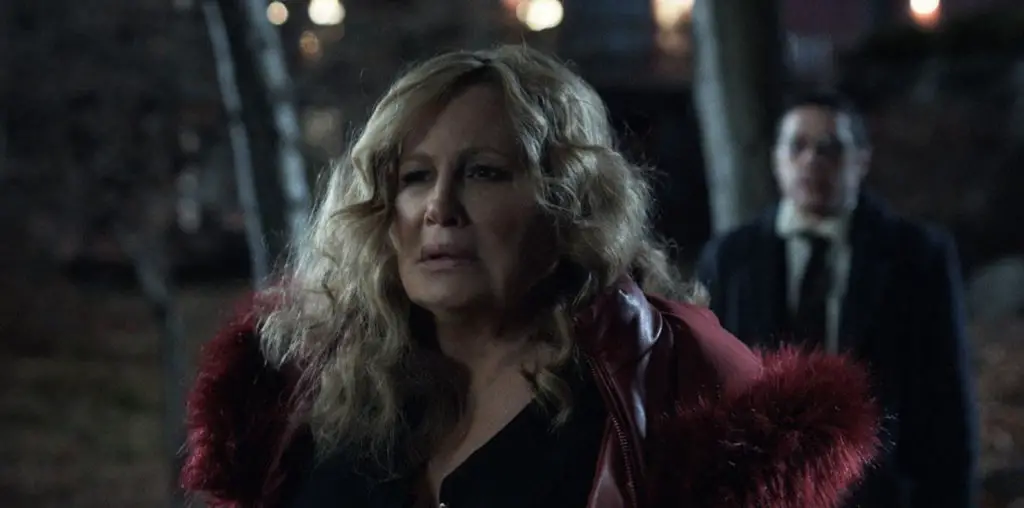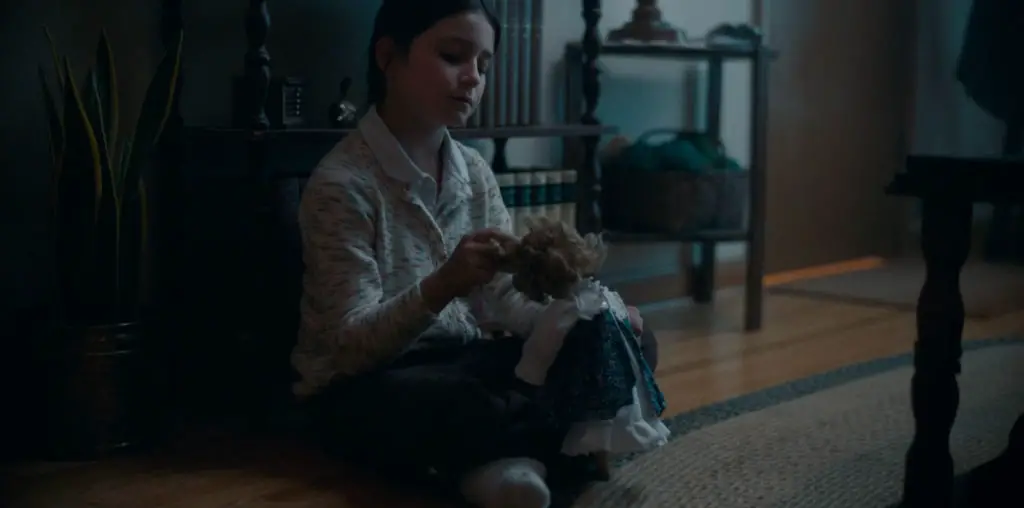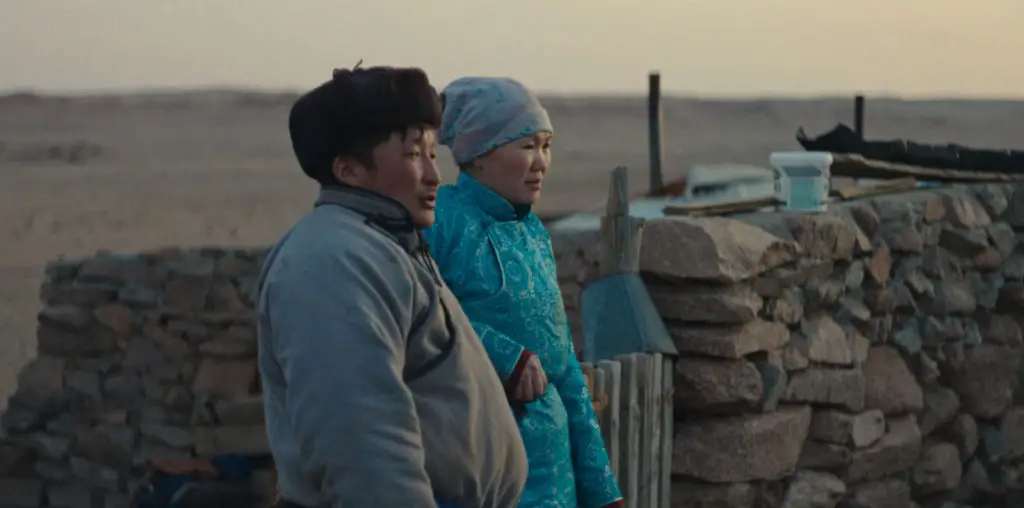
TORONTO INTERNATIONAL FILM FESTIVAL 2024 REVIEW! Nacho Vigalondo is one of the most creative directors working today. I mean, anyone who can make a movie about giant monsters destroying cities as a metaphor for alcoholism and relationship trauma is a man after my own heart. Eight years after Colossal, he’s back with another trippy, high-concept film titled Daniela Forever.
What if the love of your life died, but you could take a drug to talk to them in your dreams? That’s the plot — Daniela (Beatrice Grannò) has died, and her boyfriend Nicolás (Henry Golding) can’t cope. A friend refers Nicolás to a secretive clinical trial for a new drug that allows lucid dreaming. You realize you’re dreaming, and you have some control over it. This is a supervised trial; you’re supposed to dream about specific scenarios and report what you dreamed. But Nicolás disregards the protocol and goes all in on trying to relive his life with Daniela.
The dream scenes throughout Daniela Forever are shot in widescreen in full color, while the real-world scenes are shot on Betamax in a 4:3 aspect ratio in desaturated color. This clever conceit helps differentiate between the two worlds as the film flips back and forth from scene to scene. This is critical because, in the dream world, Nicolás is like a god; he can manipulate time, people, and almost anything, but he can’t quite make up stuff that didn’t happen in reality. Of course, in today’s reality, he’s the opposite of a god—he’s powerless.
“Nicolás disregards the protocol and goes all in on trying to relive his life with Daniela.”
Golding is solid, although his performance suffers from the structure of the script. We, as the audience, expect him to grieve the loss of his love, but the film needs him to be in denial and save all this for an emotional climax. As a result, he comes across as emotionally lacking, perhaps even wooden at times, though his charisma mostly makes up for any shortcomings. Meanwhile, Grannò does the best with the material she’s been given. There are only a few scenes where she can reveal her character’s fully-human glory, and, those are mostly saved for the end. For much of the film, she’s a shadow of her former self, really just a manifestation in Nicolás’ dreams, subject to his whims. While I understand the need to build on her character, the strange nature of the arcs detracts from the audience fully investing in either character or this love story since the script shackles the actors.
There’s an obvious way to resolve the dramatic tension in the film. But what makes Daniela Forever so interesting is that it doesn’t take this path. That’s both the strength of the movie and its biggest weakness. Vigalondo has opted for a very trippy approach that doesn’t fully hold up to scrutiny afterward. This giant framework built up over the whole run time is scrapped in favor of a mind-blowing moment that is never really resolved and ultimately rings hollow. It makes a certain amount of emotional sense, but that never fully pays off either. In fact, if you follow these ideas to their logical conclusion, you are left with something about reality that is otherwise unsupported. What’s left is an interesting film that explores relationships, regret, and grief.
However, the structure through which these themes are explored is hollow. You get the sense that they had a great idea for a film, knew not how to end it (conventionally), but didn’t know how to make it completely pay off artistically. That’s too bad because it is one of those “almost” films like Darkman or Tron. There are some cool ideas, and the film is worth seeing, but that squandered potential makes it hurt that much more that it came up short. Daniela Forever is interesting and provokes discussion, but it stays just on the dream side of greatness.
Daniela Forever premiered at the Toronto International Film Festival.

"…interesting and provokes discussion..."


